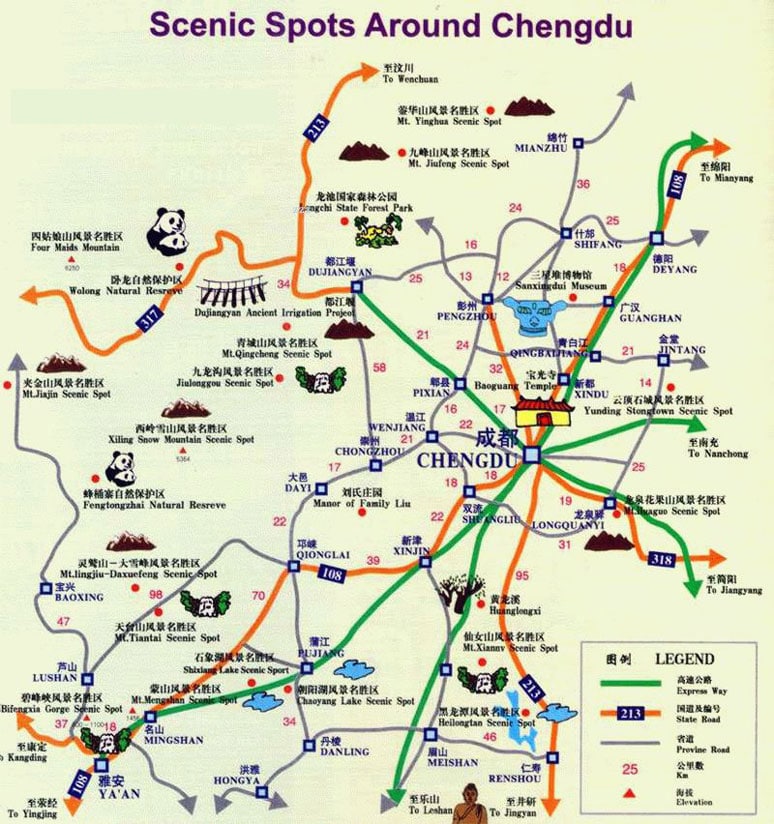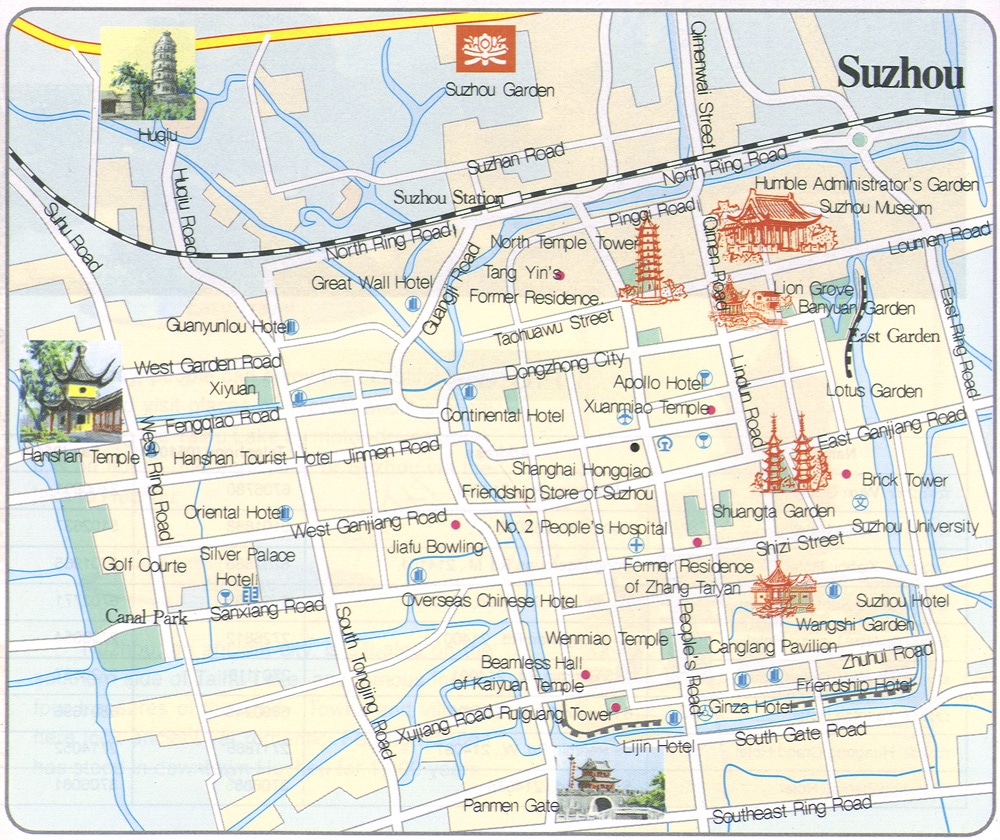Chinese-to-English translations provide us with a lot of material for unintentional humor. And while there are some sites (and even a book) dedicated solely to these funny Chinglish mistranslations, few offer any explanation. In short, I hope to answer the yet unexplored question: “What’s up with that?”
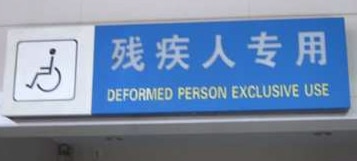
Checkout these Hilarious Chinglish Bathroom Sign Fails
Chinglish Demystified: Thoughts, Musings & Theories
First off, there might be some who might be offended by me poking fun of Chinglish. But really if anyone can empathize, it’s me. As someone who struggled with learning Chinese Mandarin for a couple of years, I understand just how different the two languages are — grammatically, tonally, and otherwise.
Because of the thousands of characters and tonal nature of Chinese, it’s considered one of the most difficult languages to master. Similarly, linguists say the same about English. In fact, it’s even difficult for some native speakers to master.
For instance, the 43rd President of the United States often displayed a rudimentary grasp of the language — as evidenced by memorable quotes such as, “Rarely is the question asked: Is our children learning?” and “This is an historic times.”
But my point is, it’s all in good fun. I can only imagine the gut-busting reactions of Chinese people if I was in charge of translating signs into Chinese (permanently displayed on public street signs). For all I know, there are Chinese websites out there making fun of hilarious signs found in Chinatowns around the world.
Actually, there is one comparable Chinese corollary to Chinglish. I know for a fact that many Chinese basketball fans (and there are a lot of them) get a chuckle out of the many badly translated tattoos of Chinese characters worn by some NBA players. If you think about it, that’s much more laughable (“He didn’t spell check a tattoo that will be on his body for the rest of his life!!??”).
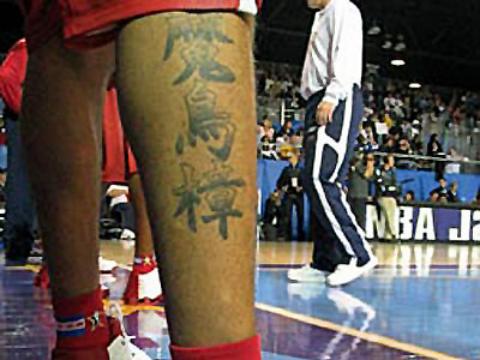
My personal favorite example is Shawn Marion’s leg tat. Apparently, as he understands it, his tattoo spells out his nickname, “the Matrix.” But a fluent Chinese speaker (not me) translated it as “Demon Bird Moth Balls.” I wonder if he has a Chinese fan page that tries to break down the exact derivation of his odd moniker.
Okay, enough background and disclaimers. Here are my theories and musings that help demystify the phenomenon of funny Chinglish signs:
Different Grammatical Rules

It’s probably obvious that Chinese syntax and grammar are completely different from those of English. Verbs are not conjugated and there are no past or future tenses.
Even a basic word such as “the” isn’t used (many errors are from adding unnecessary words or tenses such as “-ing”). There are many times no equivalent words that allow for a direct word-for-word translation. Literal translations from Chinese have given us English phrases, such as “long time no see” and “no can do.”
Automated Translation Software Sucks
The problem here is that a certain Chinese character can represent a wide range of nouns and verbs, depending on the context. Similarly, there are many words in English that have completely different meanings (such as “bear” or “stalk”).

Many Chinese words also have similar meanings depending on context; for instance, the character 看 can mean watch, read, look, or see.
To make matters worse, the “simplified” version of Chinese adopted by the Communists (not used in Hong Kong or Taiwan), consolidated a lot of totally unrelated characters together that have the same spoken sound.
A good example is this character ( 干 ), which has multiple meanings including “dry” and, well, “f*ck”. So I’d imagine that this sign should be translated as “dry goods” (unless of course, that aisle has blow up dolls and condoms).
China Translates English Idioms
Chinese—like English—is highly idiomatic. They have literally thousands of them that simply don’t translate easily (usually consisting of 4 characters). Many popular ones have a universally understood moral — a kind of cultural shorthand that virtually every Chinese person understands (often relating to a historical story or legend).
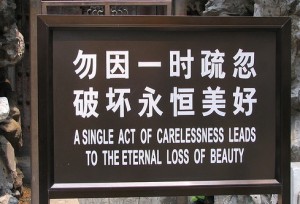
Examples of English equivalents might include sayings such as, “Don’t count your chickens before they hatch” or “Don’t look a gift horse in the mouth” (imagine how odd these would sound in Chinese if translated word-for-word).
As a written language, Chinese also lends itself well to “poetic” –almost haiku -like– translations. Instead of simply writing “Stay off the grass,” a sign might read, “The grass is smiling at you, please be kind.” Of course, they’d be better off not trying to translate it literally….but it’s all good!
Who is Translating These Signs Anyway?
I can’t back this up with any data, but here’s my theory behind this. Of course there are many proficient English speakers in China. But they tend to be highly educated and therefore in other, more lucrative professions.
Instead, many people who offer their services as “translators” have a much more limited grasp of English. I suspect many even B.S. their way into the career (with translation software in their backpocket).
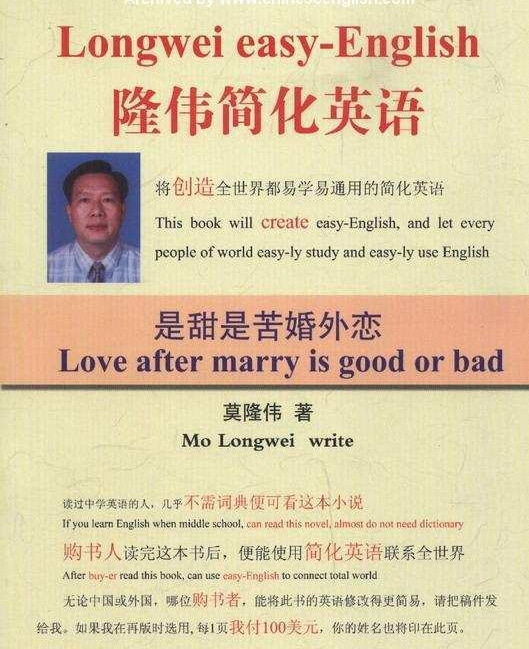
It kind of makes sense. In most cases, the bosses of the small businesses—or even government agencies — hiring the translators have zero English skills. Same goes with their staff (otherwise why would they have to hire translators?). Therefore, there’s no quality control — the people hiring have no way to determine if the translations are accurate.
What’s more, the chances of getting busted are low; what are the chances someone (fluent Chinese-speaking foreigner) will stroll by and inform the boss that the translations are jacked up? Besides, the translator will have already been paid a long time ago! And given the Chinese tendency to go with the lowest-cost supplier, is it any wonder they end up with crappy translations?
A related theory: Some translations are in-house. The boss puts someone in charge of translating (who claims to speak English on their resume). Not wanting to look bad, they either pull out their Chinese-English dictionary (many poorly edited by Chinese) or rely on translation software and hope that no one complains.
What about using native English-speaking foreigners as translators?
This has always been my question. There must be some population of native English speakers who are fluent in Chinese and work as translators, right? Yes….but the because there are relatively few of them, they probably charge much more than “low-cost” Chinese translators. I’d imagine they do work for bigger companies (not some mom-and-pop corner store).
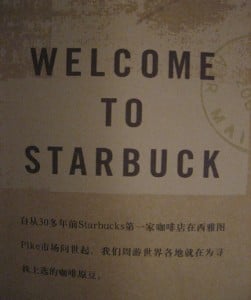
Also, I suspect there’s a pride issue involved—they might be more hesitant to pick up the phone to hire a stranger (especially a foreigner) for translating help. For the most part, translating is a low priority task — most aren’t going to spend a lot of time & money. Instead, the buck keeps passing until they find someone—anyone—who claims to be up to the task.
Jackass foreign ex-pat translators
This probably accounts for a relatively small percentage of funny (or oddly obscene) translations. My theory is that a Chinese company puts their trust in a foreigner to do some translating work. For example, a college kid studying Chinese for a couple of years.
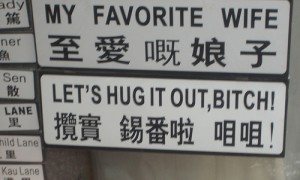
Knowing he can write whatever he wants, he (yes, most certainly a HE) thinks it would be hilarious to insert a bunch of curse words. I’ve seen some pirated DVDs–animated kids movies like Toy Story– full of obscenities in the English subtitles (clearly the work of an expat jackass).
But what about using Spell Check for God’s sake?!
Another perfectly valid question. My best answer is that in most cases, the prevailing attitude is: “Who cares?” As mentioned above, it’s easy for people to do a “just good enough” job, as long as they don’t get in trouble with the boss (who doesn’t speak English). As long as it’s checked off their requirements to-do list they’re happy (they can always blame the translator in the unlikely event a higher-up complains). Inattentive printers probably share some of the blame too — all these ABCs look the same to them, so a handwritten “G” ends up as an “C” or the letter ordering gets mixed up. Ah, whatever!
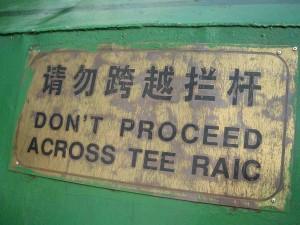
Secondly, in many cases, the target audience for the English speaking signs (oddly) is not foreigners. For most businesses, foreigners make up a tiny fraction of their customers. Instead, English (any jacked up English) is used for what you could say decorative purposes, to give a “cool, international” flair (like NBA player tattoos).

Chinglish: A dying art form?
Leading up the 2008 Olympics, the Beijing municipal government went on a campaign to cleanse the city of poorly translated Chinglish signs. The Beijing Tourism Bureau even set up a hotline for people to report bad Chinglish signs, to be reviewed by a panel of English professors and expats.
But something tells me that we’ll still have lots of funny material for years to come…
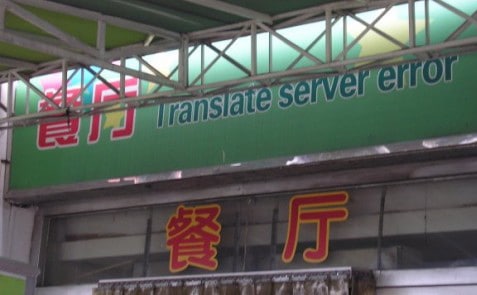
Return from Chinglish Signs to Funny & Offbeat
Return to China Mike’s travel guide Home Page




